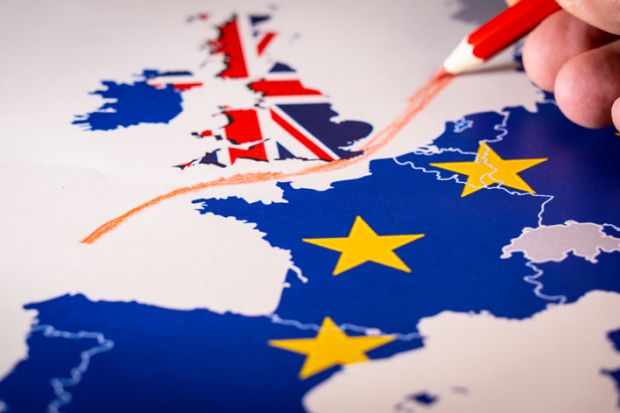Any day that UK universities’ worst-case Brexit contingency plans are not activated counts as a win. The longer UK scientists can lead Horizon 2020 projects as coordinators and apply for European Research Council grants, the better. And if students can continue to participate freely in Erasmus Plus, enjoying the benefits of the European health card, that is excellent news.
But beneath the apparent groundhog day of yet another Brexit deadline passing last week, worrying shifts are becoming visible in both London and Brussels – even before you consider what impact the UK’s forthcoming general election might have.
The question of scientific collaboration post-Brexit is becoming increasingly politicised. This is a big concern because while most of the regulations governing Horizon 2020’s successor programme, Horizon Europe, have been agreed, those regarding the association of non-members of the European Union (“third countries”) have not.
On the EU side, current proposals suggest that third countries’ payments into the system would depend on the success of their scientists at attracting grants. This is fair, but impracticable – and not just for the UK. It means that a third country’s financial commitment – currently calculated in relation to GDP – would become open-ended: something to which any finance ministry would struggle to agree. The EU has to move ground and establish some system of upper ceiling for contributions.
Even more problematic is the proposal that associated countries could be excluded from certain parts of Horizon Europe. The European Parliament has suggested that this should refer specifically to grants for individuals. Even if third countries paid their way, EU lawmakers clearly worry that giving them access to ERC and European Innovation Council grants could help them lure the best researchers and innovators away from member states, against the union’s interests.
During her confirmation process through the European Parliament, Mariya Gabriel, commissioner-designate for innovation and youth, struck a robust tone. Association should be regarded as a “tool of union policy”, she said, committing herself to limiting specific actions to member states if this served “the EU’s strategic interests”. This is very different language from that used by the outgoing commissioner, Carlos Moedas, and could presage restricted access even for close allies within the European Research Area.
Such thinking is reinforced by fears that a post-Brexit UK will pursue a “Singapore-on-Thames”-style economic strategy, engaging in a race to the bottom on standards, protections and taxes. This scenario has become entirely possible under the terms of the new Withdrawal Agreement and Political Declaration negotiated by Boris Johnson. But if the EU responds by creating barriers to UK participation in Horizon Europe, this will provide grist to the mill of those who wish to cut ties with the EU. The concern that the UK will turn global at the expense of Europe would become a self-fulfilling prophecy.
Moreover, if the EU reserves the right to exclude associated countries from certain parts of Horizon Europe, it cannot be surprised if third countries also want to pick which parts of the programme they participate in. This adds new complexity for any post-Brexit negotiations. And if each associated country has its own complex rules of access, this could quickly become confusing for researchers who simply want to collaborate with the best scientists.
The UK government’s identification of new priorities for research and innovation have created a new discourse for science to exist outside an EU context. But, in truth, the “grand challenges” outlined in its industrial strategy (artificial intelligence, an ageing society, clean growth and the future of mobility) are not very different from Horizon Europe’s “global challenges”. Boris Johnson’s (and Dominic Cummings’) drive to foster radical innovation has long been prioritised by the commission, underlining the pointlessness of the UK’s going it alone.
If scientific collaboration is hindered, all will lose. Scientists know this, but politicians evidently don’t. There is a real risk that as mistrust between the EU and UK deepens, UK non-participation in Horizon Europe becomes imaginable – and, thus, possible.
Europe’s scientific community must redouble its efforts to cut through the political noise. UK and EU science must remain fully aligned, no matter how contested the UK’s relationship with the EU becomes.
Jan Palmowski is secretary general of the Guild of European Research-Intensive Universities.
POSTSCRIPT:
Print headline: Pushed out of the frame
Register to continue
Why register?
- Registration is free and only takes a moment
- Once registered, you can read 3 articles a month
- Sign up for our newsletter
Subscribe
Or subscribe for unlimited access to:
- Unlimited access to news, views, insights & reviews
- Digital editions
- Digital access to THE’s university and college rankings analysis
Already registered or a current subscriber?








